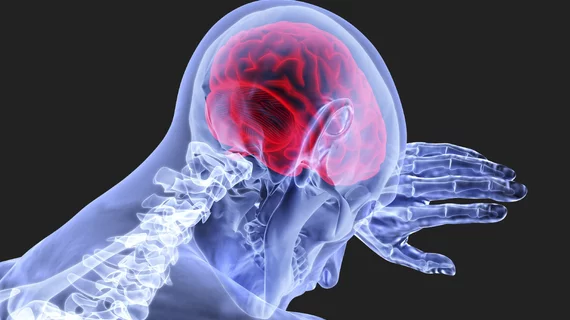Blood test finds brain injuries when CT scans fall short
A new blood test can identify mild traumatic brain injuries (TBIs) that don’t exhibit normal concussive symptoms on CT scans, according to new research published Aug. 23 in The Lancet Neurology.
The test measures elevated levels of a protein to find patients with brain injuries that might have otherwise gone undiagnosed, wrote principal investigator of the Transforming Research and Clinical Knowledge in Traumatic Brain Injury (TRACK-TBI) study Geoffrey T. Manley, MD, PhD.
"Blood-based biomarkers are emerging as an important tool to detect TBI, and this research opens up the next chapter for how the condition is evaluated," Manley, a neurosurgeon at the University of California, San Francisco (UCSF), said in a news release from Abbott, creators of the blood test. "Having these sensitive tools could provide physicians more real-time, objective information and improve the accuracy of detecting TBI. This research shows that blood tests have the potential to help physicians triage patients suspected of brain injury quickly and accurately."
As part of the TRACK-TBI study, the researchers recruited 450 patients with normal head CT scans who were admitted to the emergency department of 18 U.S. level 1 trauma centers for suspected TBI between Feb. 26, 2014, and June 15, 2018. All patients had normal head CTs and agreed to venipuncture within 24 hours after injury and had an MRI 7-18 post-injury.
The team evaluated the glial fibrillary acidic protein (GFAP) levels in the patient’s blood and analyzed their MRI scans to confirm TBI. Overall, GFAP levels were much higher in patients with a positive MRI and negative CT scan, compared to those with both negative CT and MRI scans. And, in participants with detectable protein levels, among the 90 with the highest GFAP levels, 64% had a TBI when confirmed on MRI scans. In the 90 patients with the lowest GFAP levels, 8% were confirmed to have a TBI.
“The research showed that GFAP could be used to determine which group of people should be screened further or referred for an MRI to confirm their TBI,” according to the same news release.
The i-STAT blood test is currently in development by Abbott.

